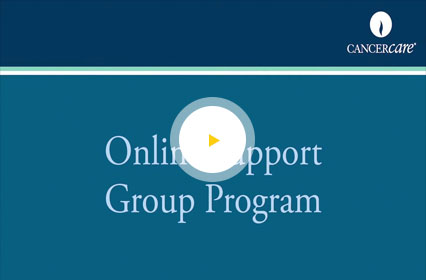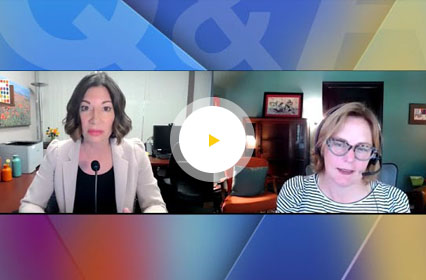A Guide for Pancreatic Cancer Caregivers

Share this Article: [social-share align=”left” style=”icon” size=”m” nospace=”no” animation=”no” counters=”0″ buttons=”facebook,twitter,mail,messenger”]
Written By Julia Brabant
April 28, 2022
Tips for Pancreatic Cancer Caregivers

When a loved one faces a pancreatic cancer diagnosis, you may find yourself adopting the role of a caregiver, or the person who tends to your loved one’s physical, personal and emotional needs. While, at times, serving as a caregiver is tremendously rewarding and fulfilling, it can also take a sizable physical, mental and emotional toll and upend numerous aspects of your life.
Many people serving in caregiver roles for cancer patients face similar challenges. For example, you may find it difficult to prioritize your own needs while devoting so much time and attention to helping your loved one navigate his or her cancer journey with pancreatic cancer. You may, too, find it difficult to watch the dynamic between you and your loved one shift, or you might start to feel isolated, overwhelmed or depressed as you adopt so many additional responsibilities.
To provide quality care for your loved-one, you first need to take care for yourself as a caregiver. Following are some caregiver tips on how to best advocate for the needs of your pancreatic cancer patient without neglecting your own needs.
Taking Care of Yourself As A Caregiver
First, give yourself a break. Being able of coping with the stress of being a caregiver is not easy. It is completely acceptable to feel overwhelmed as a caregiver, and in no way does that make you any less of a champion for your husband, wife, son , daughter, or other family member or close friend facing a cancer diagnosis. Caregivers must take care of themselves.
Ask for Help
If you feel like you could benefit from a few hours or afternoons to yourself, speak up! Don’t be afraid to delegate tasks to others. There may be friends or other family members who can step in, or you may be able to find professional in-home respite care so that you can take a much-needed break. Many caregivers also participate in one-on-one or group counseling sessions to help cope with the challenges associated with their new roles as a cancer caregiver.
Seek Caregiver Social Support
While seeking professional support may benefit you as a caregiver, you may also find it useful to connect with other caregivers who have firsthand knowledge of what you are going through. You may be able to find support groups in person or online, and social media is also a great place to connect with others facing similar circumstances, regardless of where they might live.
Know Your Legal Rights As A Cancer Caregiver
Many cancer caregivers share similar concerns about falling behind professionally or losing their jobs as a result of being stretched too thin. However, if you work for a public agency, an educational institution or any employer that maintains a staff of 50 or more workers, you also have certain protections under the Family and Medical Leave Act with regard to taking time off to care for your loved one.
Resources for Pancreatic Cancer Caregivers
You may feel alone in your role as caregiver, and you may feel especially so as someone helping a patient with pancreas or another rare form of cancer. You are not alone, though, and one of the best things to come from the internet age is the ability to connect with others facing similar circumstances all over the country. Here are some resources you may find helpful as you navigate the role of the cancer caregiver.
Caregiver Resource Guide from The American Cancer Society
Although it is not specific to pancreatic cancer, The American Cancer Society features a very in depth 126-page general cancer-giving guide for cancer caregivers. It features very detailed information for caregivers that are giving care to patients experiencing any type of cancer including pancreatic cancer. The American Cancer Caregiver Guide serves a complete tool not only for caring for a cancer patient but for caring for yourself as a caregiver. The guide also include blank “not pages” where specific hand-written notes can be entered.
Download The American Cancer Society 126-Page Cancer Caregiver Resource Guide
Financial Resources for Caregivers from The American Cancer Society
The American Cancer Society also maintains a database of programs and resources that may be able to help you with cancer caregiver-related expenses.
Cancer Support Groups
Just as support groups can work wonders as far as keeping a cancer patient’s spirits high, the same holds true for cancer caregivers. CANCERCARE offers more information about different types of caregiver support groups and where to find them. You may also be able to find support groups at the local level, or with the help of a social worker or navigator your patient’s cancer doctor recommends.
The National Cancer Institute also offers a wealth information related to coping With Being a Cancer Caregiver.
Video/Educational Support
The American Cancer Society maintains a Video Library for Cancer Caregivers you can access 24/7. Videos in the library offer guidance on everything from how to provide the best physical care for your loved one to how to best practice self-care so you can be at your best as a caregiver.
Helping Yourself Helps Your Loved One
When you fly on an airplane, the airline staff tells you to put on your own oxygen mask before helping others around you with theirs. The same concept holds true when it comes to caring for a loved one with cancer. To provide quality care for a patient, you first have to take care of yourself.
Setting aside time for self-care, giving yourself grace when you’re feeling overwhelmed, and making connections with others facing similar circumstances can work wonders in terms of easing the stresses that can accompany the caregiver role. The more you keep your own mind at ease and emotions in check, the more you will be able to serve as a much-needed source of support for your loved one.
More Cancer Caregiver Helpful Information
When you fly on an airplane, the airline staff tells you to put on your own oxygen mask before helping others around you with theirs. The same concept holds true when it comes to caring for a loved one with cancer. To provide quality care for a patient, you first have to take care of yourself.
Setting aside time for self-care, giving yourself grace when you’re feeling overwhelmed, and making connections with others facing similar circumstances can work wonders in terms of easing the stresses that can accompany the caregiver role. The more you keep your own mind at ease and emotions in check, the more you will be able to serve as a much-needed source of support for your loved one.
A free booklet from the National Cancer Institute: “Caring For The Caregiver“.
A free booklet from the National Cancer Institute: “Support For Caregivers“.
Podcast: Cancer Caregivers Must Be Able To Care For Themselves
This is an excellent podcast by the Mayo Clinic. When someone is diagnosed with pancreatic cancer or any cancer, family members and close friends step into the role of becoming a caregiver. Caregivers are rarely trained for the stressful, yet can suddenly become indispensable for the cancer patient for whom they care.
The following video not only answers most of the questions you would ask about becoming a caregiver, but also gives tips on how to reduce the stress of being a pancreatic cancer caregiver.









